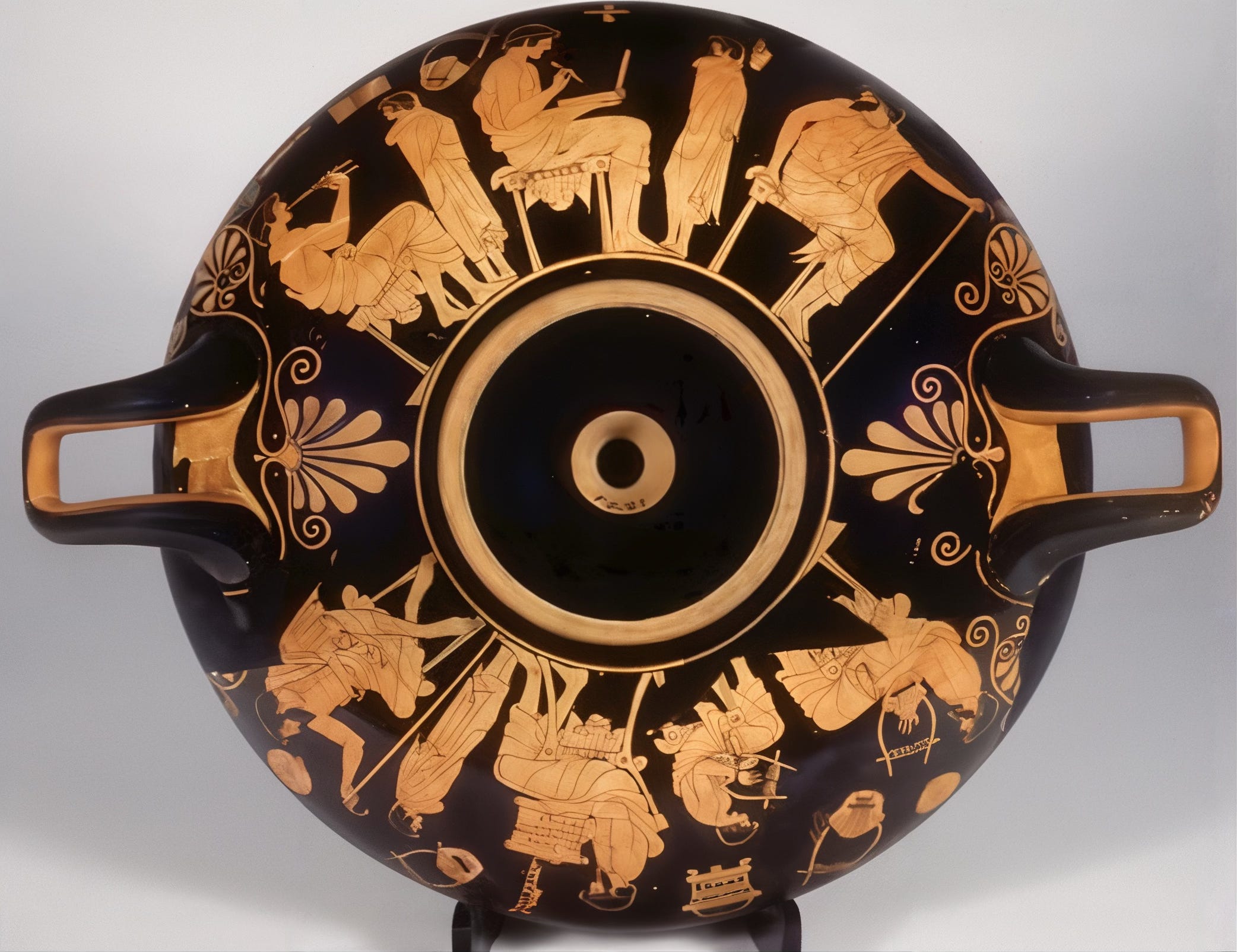by Eugenia Manolidou
In ancient Greece, music was a way of life, not just a form of art; an essential element of paideia, of moral and intellectual education, and of cultivated thought. It was present in every sphere of human activity: in religious festivals, in the theatre, in athletic contests, even in battle and at symposia. Music accompanied and elevated every act, giving it strength and shaping the soul.
The Greeks believed that music was a divine gift, profound and precious. «Σεμνή κατὰ πάντα ἡ Μουσικὴ θεῶν εὕρημα οὖσα» writes Plutarch: “Music is venerable in every way, being a discovery of the gods.” Behind every art, and even behind philosophy and science, stood a Muse. The Muses, nine daughters of Zeus and Mnemosyne, personified the very notion of inspiration, not only in music but also in poetry, history, mathematics, and astronomy. Music, after all, could not exist without memory, it was the offspring of Mnemosyne. «Μνημοσύνης καὶ Ζηνὸς ἐριγδούποιο θύγατρες, Μοῦσαι Πιερίδες, μεγαλώνυμοι, ἀγλαόφημοι…» we read in the Orphic Hymn to the Muses.
This harmony of word and sound permeated every level of education. Children learned to play the lyra and the aulos, to sing the poetry of Homer and Sappho, to train in rhythm, metre, and the inner precision of speech and music. A philomousos, a lover of music, was a cultivated person, a lover of learning. From the epics of Homer to the dialogues of Plato, music served as a means of character formation, of education, and of inner harmony.
Its mythical origin says even more. Hermes, shortly after his birth and before he had even grown properly, fashioned the first lyre from the shell of a tortoise. Apollo, god of light, prophecy, and music, accepted it as a gift and became its divine patron. Around him, the Muses sang the world into being with the power of word and melody. Music even preceded philosophy, not because it was superior, but because it taught rhythm, discipline and harmony through experience. Children in antiquity learned the lyre, the aulos, and metrical precision alongside writing, arithmetic, and athletics. Musical training was a foundational part of paideia. Vases such as the kylix by Douris, depicting a young man studying the lyre, reveal the ethos of learning: attentiveness, harmony, and inner discipline. «Μη ζώην μετ’ ἀμουσίας», says Euripides in Heracles, one should not live without music, or rather, without the Muses: without education in its fullest sense.
Today, thousands of years later, music continues to accompany us, reflect us, and elevate us. In an age of constant change, World Music Day offers a moment to reflect on what music means to us and how we might still honour it.
Χαίρετε καὶ ᾄδετε! Εἰς ἔτη πολλά τοῖς μουσικοῖς τε καὶ φιλομούσοις!
Rejoice and sing! Long life to all musicians and lovers of learning!
Educational Note
At Elliniki Agogi, we offer a free educational programme on “Music in Ancient Greece: Sounds, Myths and Culture,” tailored to all school levels. Through music, theatre, and historical reenactments, students discover the instruments, meaning, and central role of music in ancient education. Learn more here.

Image Caption
School Scene. Kylix by Douris
Douris, early 5th century BCE
Red-figure kylix depicting musical and educational training.
Early Classical Period
Berlin, Staatliche Museen – Antikensammlung
